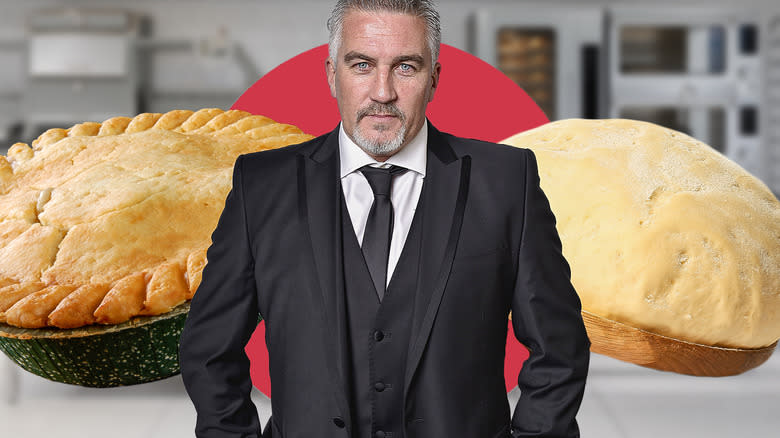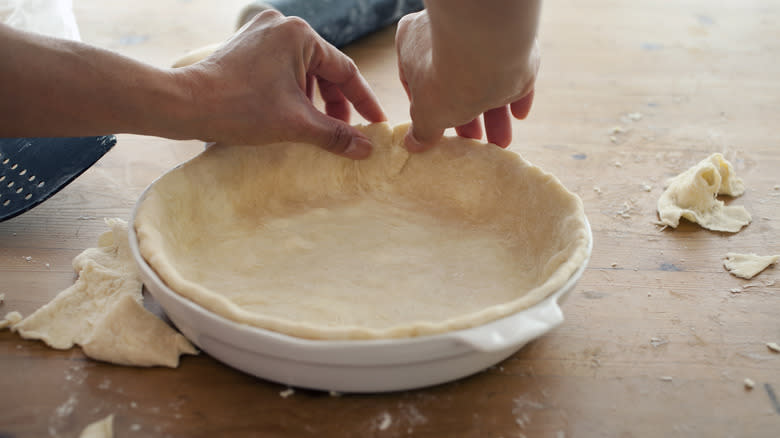The Pastry Mistake To Avoid When Making Chicken Pot Pie, According To Paul Hollywood

- Oops!Something went wrong.Please try again later.
A decade plus of hosting a beloved cooking show means Paul Hollywood has seen people make the same mistakes over and over, and he knows one of the biggest problems with chicken pot pie. The filling of a pot pie may be what draws people in, but experts like Hollywood know that the crust is what separates a great one from an okay one. Anyone making a pie for Hollywood on "The Great British Bake Off" lives in fear of the dreaded soggy bottom and breathes a sigh of relief when he cuts into slices to reveal a perfectly flaky crust. It reminds you that pie crust is pastry, which is challenging, precise, and temperamental. Small slip ups can leave you with a tough, bland crust, and one of the easiest aspects to overlook is how long you are handling your dough.
As Hollywood rolls out the dough for chicken pot pie over on YouTube, he dispels one concern by revealing a bigger one. According to the baker, the idea that having "hot hands" is a problem for pastry is a myth, because you shouldn't be handling your dough long enough for that to matter. "If you play with the dough too much, it will heat up, and it will go like rubber," says Hollywood as he quickly folds shredded butter into his crust dough. Overhandling pastry dough can cause a number of problems, and the one he is talking about here is melting butter.
Read more: Ina Garten's 12 Best Cleaning Tips For A Mess-Free Kitchen
Letting The Butter Melt In Your Pie Dough Will Mean A Tough Chicken Pot Pie

Butter is essential to the texture of pie dough. Flaky doughs like pie crust get their signature layers from how the butter reacts to heat. Butter is used first to physically separate the layers of dough as you roll it out, and then once in the oven the butter cooks, the water in it evaporates, and that produces the steam and air pockets that cause the layers to flake. The problem is that butter gets soft at relatively low temperatures, even in the 70 degrees Fahrenheit range, and soft or melted butter has the exact opposite effect of cold butter. Soft butter will mix with flour and coat the molecules, preventing them from binding, and that creates a solid mass of dough that's crumbly instead of well-structured and layered.
With butter's propensity to get soft quickly, making pastry is a race against the clock. Making sure your butter and dough are both cold before you fold them together is essential, but even chilled butter can start to melt quickly, so you want to do as little folding as possible as quickly as you can before it goes back in the fridge to rest. Pie dough may be pastry, but it's not as precise as a croissant, so you don't need to be precious. It isn't necessary to be a Paul Hollywood-level expert to make a great chicken pot pie, you just have to be quick.
Read the original article on Tasting Table.

